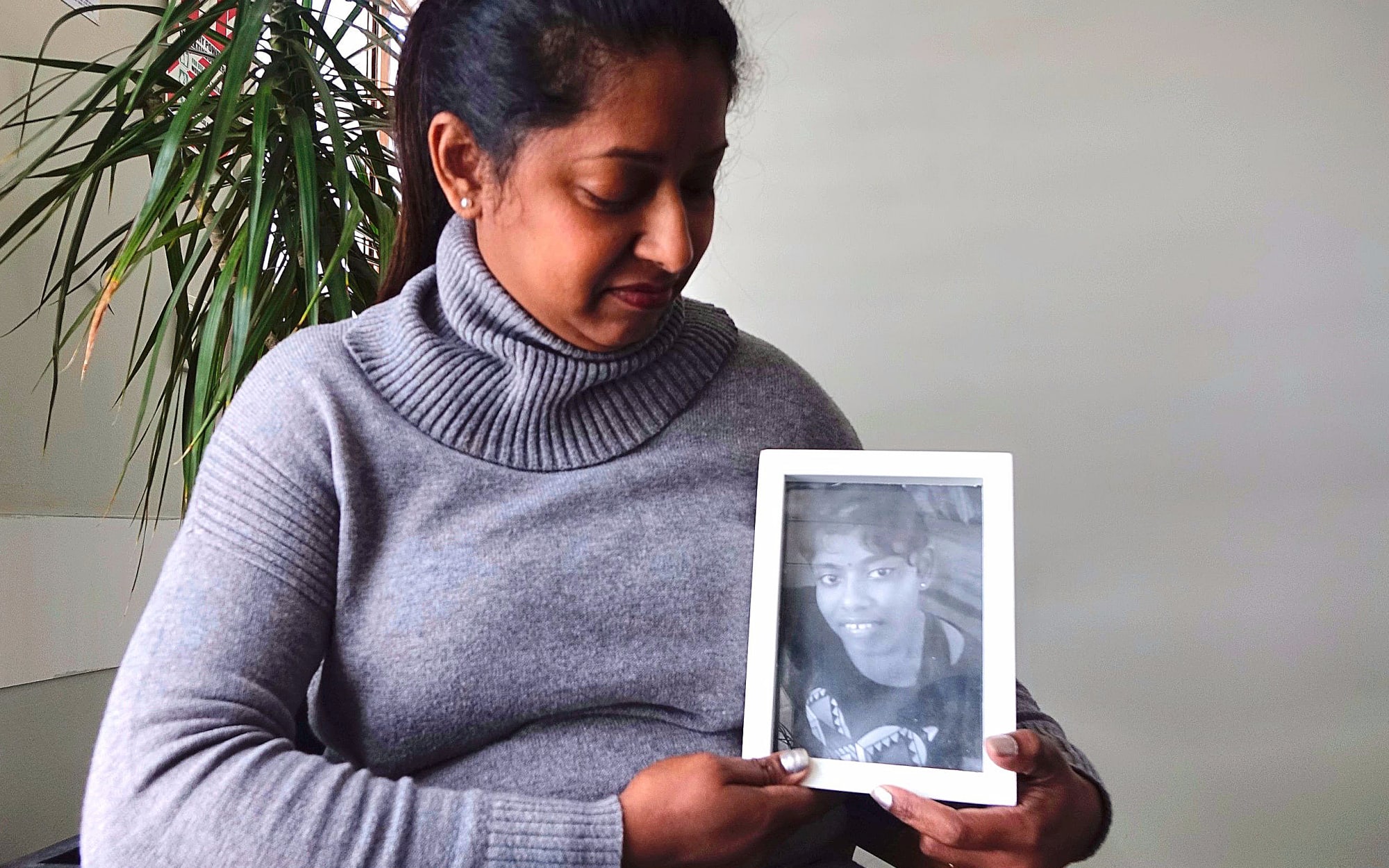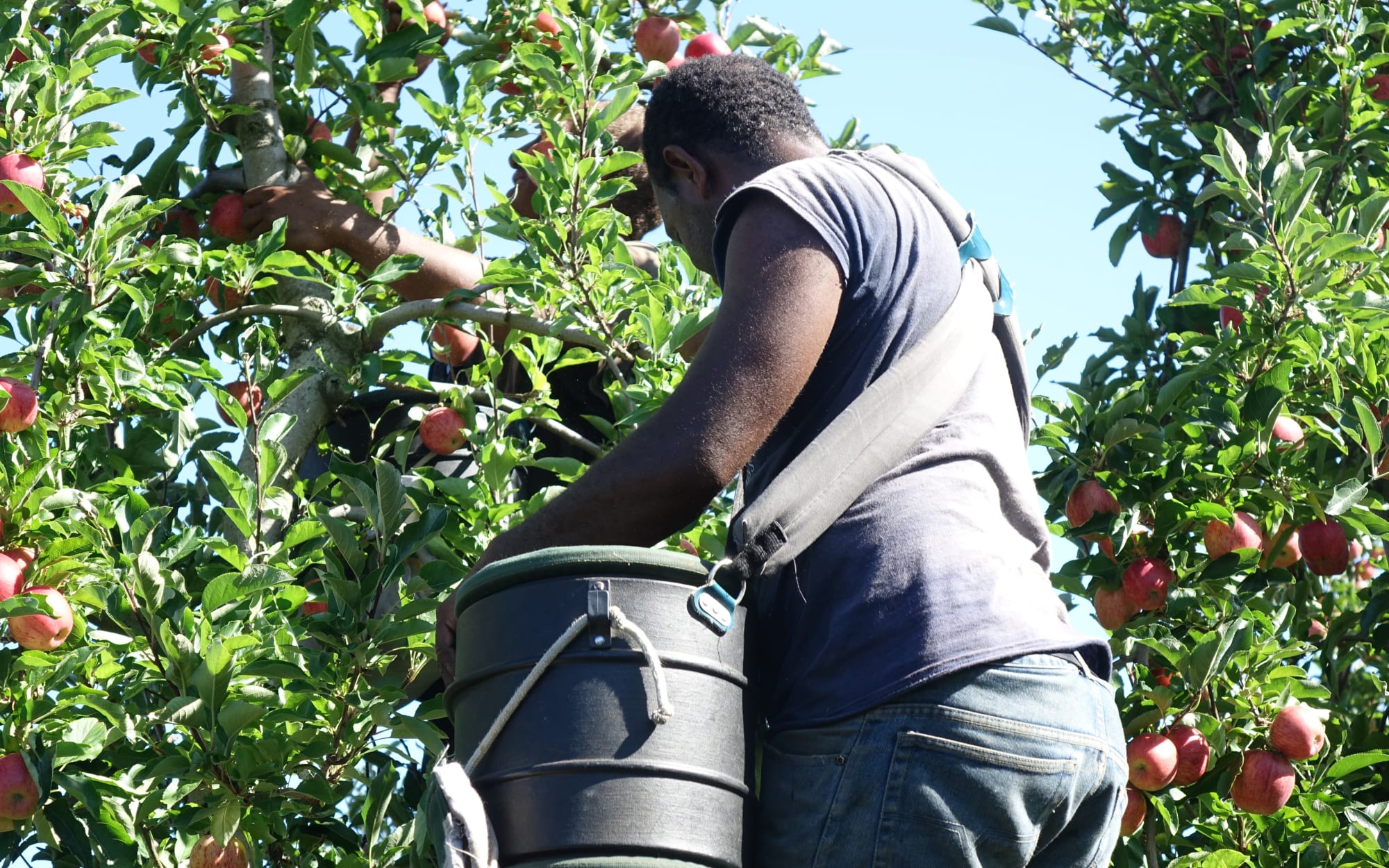Every time Sangeeta Bali visits her 13-year-old daughter Shurti in Fiji, the girl clings to her, reluctant to ever let go.
"When I am in Fiji, she will just hold my skirt, pull me," Ms Bali says. "My mum will try and ask her to come - she won't want to come."
This month, Ms Bali and her husband Jay will return to visit Shurti for the fourth time this year.
It's a trip they are used to making frequently, because Shurti - who has cerebral palsy - has been declined both a visitor and residency visa for New Zealand, where the rest of her immediate family lives.
New Zealand boasts a significant historical relationship with the Pacific region. Auckland is the largest Polynesian city in the world. But the number of Pacific migrants being allowed to call this country home has fallen significantly in recent years.
Despite record immigration levels overall, government figures show policy changes have slowed the arrival of migrants from the Pacific region - and Ms Bali is among those who feel New Zealand's borders seem to be closing to its Pacific neighbours.
Ms Bali initially came to New Zealand in 2010 to study. After graduating and finding employment, she has been living in New Zealand ever since.
She has permanent residency, her husband and son are both New Zealand citizens, but repeated visa applications for Shurti have been declined.
Her case has most recently been affected by a policy change last month, prohibiting parents from leaving children off initial residence applications - a loophole Immigration New Zealand says applicants were exploiting to later bring in sick, disabled or special needs children.
Ms Bali's parents have taken care of Shurti in Fiji over the years, but early this year Ms Bali's mother died suddenly and now her father's health is deteriorating. Another relative has taken Shurti in temporarily.
The Immigration Protection Tribunal, declining the family's most recent visa application, told them that given current immigration settings, it was unlikely a visa would ever be granted.
Ms Bali says she now feels hopeless.
"I feel like ending my life ... I'm so alone. Now I have no support from anyone to look after my daughter."
Shurti is trying to get used to it, Ms Bali says.
"But maybe at the same time she must be thinking, 'Why is my mum not taking me?' I'm trying all my best... What can I do?"

Sangeeta Bali holds a photograph of her daughter Shurti, 13, who lives in Fiji and has been denied a visa to come to New Zealand. Photo: RNZ / Indira Stewart
Policy changes drive decrease
Immigration lawyer Richard Small says the new policy disregards Pasifika culture, where informally adopting out children to relatives or parents and having them come back into a parent's care later is a norm.
"It's going to have a huge effect.
"A child may be with the grandparents and - we've had many many cases like this - the grandparent passes away [and] they come back into the care of the parents."
How that wasn't considered by New Zealand policy-makers is "baffling", Mr Small says.
That policy tweak is just the latest in a series of changes.
In 2012, the government scrapped a visa category that allowed immigrants to sponsor their adult children and siblings to move here.
It simultaneously tightened the criteria for migrants wanting to sponsor their parents to join them - a change then-Immigration Minister Nathan Guy acknowledged could make migration harder for Pacific peoples.

Immigration lawyer Richard Small Photo: Supplied / Pacific Legal
The changes introduced a two-tier system which meant those with higher incomes would have their applications processed more quickly.
It had been a category many Pasifika families commonly used to bring over relatives to help with childcare so they could work. Since the changes, Pacific applicants in that category have fallen by 28 percent.
The Skilled Migrant visa category has seen the same drop in Pacific migrants since 2012, despite the overall number of approved applicants increasing by 7000 in that same period.
Mr Small says an increase last October in the points required to automatically qualify for the visa has made it unattainable for most Pacific migrants.
Information provided to RNZ by Immigration New Zealand shows that of the 986 Pacific applicants who were successful last year prior to the changes, only 56 - or six percent - would be automatically eligible if they applied now.
'The Pacific is spelt R-I-S-K'
To counter the falling figures, Immigration Minister Michael Woodhouse has said New Zealand is very generous to Pacific migrants through a scheme that randomly selects registered names out of a ballot across the region.
The Pacific Access Quota scheme allows for 75 migrants each from Kiribati and Tuvalu, 250 each from Tonga and Fiji, and 1100 from Samoa.
All those selected must be between the ages of 18 to 45 and they, or their partners, must have a job offer that can pay enough to support their family in New Zealand.
But former Tongan immigration officer Sione Palavi says those quotas are never filled because applicants struggle to meet the criteria, particularly the requirement to have a job offer.
"Some of the applications were declined based on - without the job offer. Or the job offer doesn't meet the criteria we're looking at."
Selected applicants desperate to move to New Zealand are sometimes exploited by employers illegally selling job offers, Mr Palavi says.
"There's even a couple here, I met them a few years ago and they were telling me how they get their job offer, they pay a thousand-something [dollars] to the employer.
"Even though they were successful and they got their residency here ... they didn't even get the chance to work for them."
The Immigration Advisers Complaints and Disciplinary Tribunal noted last year it had seen "multiple cases" of suspected job-selling.

A growing number of Pacific Islanders are coming to New Zealand under the Recognised Seasonal Employer scheme, but other longer-term visa categories have become harder for Pacific migrants to obtain. Photo: RNZ / Johnny Blades
Along with the job requirement, English language requirements for the Pacific Access scheme have also been boosted to a minimum English language test score of 6.5 - the same minimum required by most universities internationally - or proof of study towards a bachelor degree or higher qualification in English.
The former requirement was a secondary high school English qualification - an achievable goal for many migrants from the Pacific, where generally high school subjects are already taught in English.
Richard Small says Pacific migrants are unfairly seen as low-value migrants and tighter immigration rules are now shutting more of them out.
"The Pacific is spelt 'R-I-S-K' for [Immigration New Zealand] and I think that's unfortunate. It should be also looked as an opportunity, not just a risk."
The government needed to take a balanced approach, he says.
"That's hard, it goes against the grain of the immigration debate at the moment, but it still is a discussion worth having."
RNZ's election series Is this the Brighter Future? examines the government's record since it was elected in 2008. Read more here.



